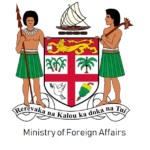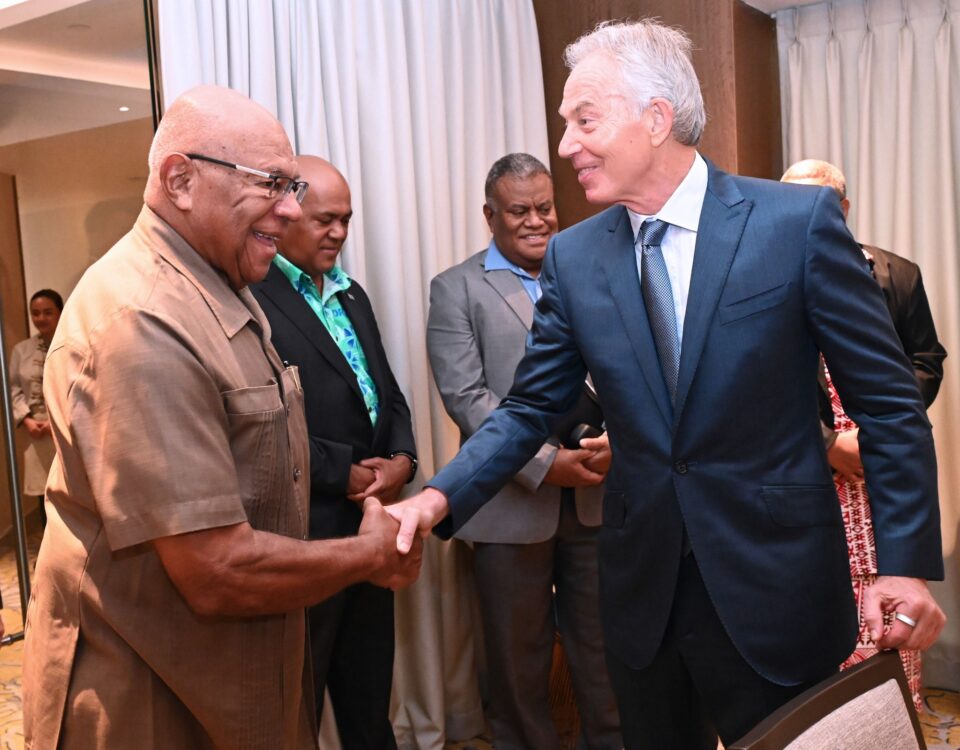
Prime Minister Hon. Voreqe Bainimarama’s Diwali Message
13/11/2020
The Attorney-General, Minister for Economy and Minister Responsible for Climate Change Aiyaz Sayed-Khaiyum’s Speech at the Launch of the Second Round of Public Consultations on Fiji’s Climate Change Bill
20/11/2020Published On: 18/11/2020
Excellences,
Ladies and Gentlemen,
Bula Vinaka and a very good morning to you all,
It is my pleasure to be with you today as we prepare to finalise Fiji’s National Ocean Policy.
On the world stage, Fiji is generally referred to as a small island developing state, which we are. But when you take a bigger, bluer view of the world, there’s nothing small at all about Fiji’s responsibilities. We are actually a “large ocean state” with over 1.3 million square kilometers of sea under our protection. And we’ve led the global ocean’s management movement from its inception.
It was Fiji’s first-ever Ambassador to the United Nations, the late, great Satya Nandan who personally led the international charge in finalizing the UN Convention on the Law of the Sea. Decades on from that achievement, Fijians have been propelled once again to the forefront of oceans leadership as we find ourselves on the frontlines of our ocean’s degradation. We see first-hand everyday how ocean ecosystems are buckling under the strain of a warming world, pollution, overfishing and other reckless abuse from humankind. In the face of these new and worsening threats, this national ocean policy will serve as our compass towards sustainable oceans management – at home through action and aboard through advocacy.
There’s a lot I could say this morning about the ancient connection Fijians share with the ocean and about the tragedy of watching oceanic life spiral towards extinction, how our reefs are disappearing, how overfishing is stripping our oceans bare, and of how Fijian livelihoods are being lost to warming, acidification, and unregulated seas. But most of us are well familiar with the scale of crisis we face. The focus of this policy is not to re-hash the challenges before us – it is about how we, as the Fijian people, as businesses, as civil society organizations, and as a government are going to practically go about solving them. It is about how we will leverage traditional knowledge to take on new problems. It is about leading by example in addressing the complex consequences of the ocean-climate nexus. And it is about how we will build a blue economy that transforms the ocean into a more sustainable source of prosperity. It is about choosing a different future for the ocean; rather than see them collapse into lifeless wastelands, with the right management, ocean ecosystems can become more bountiful than they have ever been.
It’s difficult to put an exact figure to the value of the blue economy. But most experts estimate it is worth around 1.5 trillion dollars a year. In contrast, less than one percent of that sum is invested back into ocean management.
Ladies and gentlemen, that’s exploitation, plain and simple. And it’s costing us badly. If you look at the fisheries sector, for example, that lack of re-investment is leaving billions on the table. To be exact, The World Bank and FAO recently revealed that ocean fisheries mismanagement costs us up to $100 billion annually in lost economic potential. Sector by sector, the story is much the same – humanity has treated our oceans as an inexhaustible resource. We have failed at making simple, common-sense investments back in ocean health. Meanwhile, the science has become painfully clear: The only ocean we can actually afford in the future is one which is sustainably managed.
For the first time in a very long time – due to the devastating economic impact of COVID-19 – humanity’s assault on the ocean is actually relenting. But that’s not progress we can count on. Even as the world’s most developed economies have put forward tens of trillions of dollars in economic stimulus to revive their crippled economies, the ocean economy has so far been an afterthought. So, for all the celebratory headlines that a new vaccine will soon bring life back to normal, we should pause and consider what that means for the planet. Do we want to rush back to the one-sided, short-sighted exploitation of ocean ecosystems? Do we want to relax restrictions on oceans management for the sake of immediate economic growth? Fiji will not settle for that desperate recourse; neither should the rest of the world. Instead, we must use this opportunity to bring big, blue ideas to bear in the global recovery. Though small island economies like our own have been hardest hit by this pandemic, we remain committed – now more than ever — to a blue recovery and a sustainable future. To get there, we should make space for innovative solutions, including the use of blue bonds, which we believe can play a key role in our economic comeback.
At the heart of this policy rests Fiji’s commitment to the 100% sustainable management of our Exclusive Economic Zone (EEZ) and its 30% designation as Marine Protected Areas by 2030. Given the size of our EEZ, we aim to work with our development partners to realise that commitment, including through our involvement with the United Kingdom’s ‘30by30’ initiative. For Fiji, a sustainable ocean is an ocean free from pollution, a well-mapped ocean, a healthy ocean of interlinked habitats which provide food and bounty through aquaculture and regulated fishing, an ocean of net-zero emissions, including in shipping, an ocean which is open to scientific exploration and understanding, and an ocean which remains a source of identity, of culture, and of fulfilling livelihoods for our people.
That’s a bold agenda. I’ll tell you now, government cannot achieve those aims alone. That is why Fiji’s National Ocean Policy is also defined by its multi-agency approach. It taps synergies throughout government, and between government and the private sector, civil society, and community-level organisations. We recognize the folly of a purely top-down approach. Instead, effective implementation of sustainable ocean management must occur from the feet up. Every ordinary citizen should be armed with the same working knowledge as ocean experts, and that knowledge should guide the way they run their businesses, the food they eat, when and where they fish, and it should inspire them to expend the small effort it takes to properly dispose of waste in the bin rather than on a beach, in a river, or by the side of the road.
The National Ocean Policy will be legislated through our upcoming Climate Change Bill and highlights elements from existing national legislation such as the Environment Management Act, the Marine Spaces Act, the Offshore Fisheries Management Act, and many others. In many cases, we do not need to reinvent the wheel to engrain ocean action in our development. Stronger legislations and governance on areas such as tuna catch, could allow Pacific Island Countries to gain an additional $250 million a year. This National Ocean Policy builds upon existing legislature and streamlines implementation through a more effective and efficient allocation of resources.
Anyone who was in Madrid at COP25 can testify to the sleepless nights Team Fiji spent seeking to engrain the Oceans Pathway Partnership into the international climate negotiations. Our work through the Commonwealth Blue Charter, the Ocean Panel and through this new ocean policy are centered around the Pacific-driven recognition that the climate crisis is an oceans crisis as well. Because without urgent and drastic cuts to carbon emissions, our work to save the ocean will end before it ever begins.
Before I leave you all to undertake a very important task today of endorsing the National Ocean Policy, I would like to thank our technical partners, the World Bank, IUCN and the Vibrant Oceans Initiative. Your assistance and insight has been invaluable.
Fiji may indeed be a large ocean state, but we should be mindful that our patch of the Pacific is still only one small part of a much larger, connected blue economy. Our future – and the future of our ocean – still rest in the collective hands of the world, particularly the largest, most developed nations. We can lead through our advocacy on the world stage. We can make the moral case by testifying to the tragedy Fijians are living. But we speak far more powerfully through our actions. By actually building a sustainable and prosperous ocean society ourselves, the power of our example can inspire the world to follow suit. Ultimately, that is the goal of this National Ocean Policy, to build a stronger, bluer, and more sustainable Fijian economy that helps build a wave of momentum that lifts our ocean, our climate, and the world economy onto a more sustainable path.
Thank you very much.





